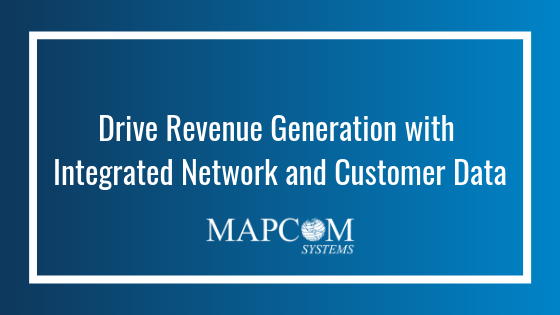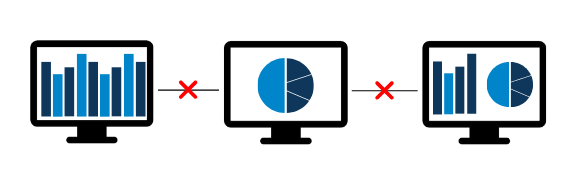As the landscape of how companies do business changes, communication service providers (CSPs) are continuously evolving their business plans to meet the needs of the next big idea. Now, more than ever, data-driven decision-making is at the forefront of a company’s business structure. It touches almost all sides of the business – how a company markets, sells, and secures services. They’re not just concerned about the company’s network data, but the information of potential serviceable addresses in their area.
So where does a company keep this information? Most companies enlist the help of a Customer Record Management System or CRM. The CRM serves as the central repository for all details regarding customers, both current and potential. As the industry changes, executives and their workforce have record of the details they need to make data-driven decision. However the data is often siloed and spread across their respective systems: customer data in the CRM and network information in their mapping program, with little communication between the two. This blocks companies from creating a holistic picture of their network, real and potential.
With over 40 years of working with communication service providers, Mapcom Systems has noted the industry’s need for an interface that compiles consumer data, network mapping and infrastructure into one view. CSPs need a platform that both seamlessly integrates the details from a CRM with network data and creates a detailed cost report for serviceable addresses. That’s why we’ve created a brand-new integration that allows Salesforce Sales Cloud to talk with M4 RevGen to provide an accelerated estimate of costs. This integration pushes accounts, leads, and opportunities from Salesforce into M4 RevGen and links those details to a serviceable address. M4 RevGen is loaded with both demographic data and unique construction costs to create pricing that is specific to a company’s service area. Together with the M4 API, M4 RevGen integrates with Salesforce to give businesses the power to quickly assess and prioritize leads or areas of service to target for marketing and sales initiatives.
To get a better picture of how this integration assists in creating data-driven opportunities, let’s look at a practical use case from one company using M4 and Salesforce together. First, M4 RevGen was loaded with demographic data that correlated to serviceable address data. From this point, the company’s Marketing department ran a report inside of M4 RevGen on serviceable addresses to create a targeted list. With this list, they supplied content for these addresses, ranging from digital outreach to door hangers at their specific locations.
Once Marketing vetted these locations and found an opportunity, the opportunity was then passed to their Sales team. M4 RevGen then automatically created an estimate of the cost associated with connecting the given structure to the nearest access point. With the provided route, M4 RevGen accounted for known obstacles such as road crossings, water crossings, and other potential disruptions of service. Once M4 RevGen had compiled all the details, the data was returned to Salesforce for a salesperson to evaluate and decide on actionable steps.
structure to the nearest access point. With the provided route, M4 RevGen accounted for known obstacles such as road crossings, water crossings, and other potential disruptions of service. Once M4 RevGen had compiled all the details, the data was returned to Salesforce for a salesperson to evaluate and decide on actionable steps.
As a mobile friendly app, M4 RevGen can also be used to create on-the-fly estimates for salespeople and sales engineers that are working from the field. This functionality provides the team with insights on the practical serviceability of an address before walking in the door.
With opportunities for automation, tools to derive actionable insights, and a decrease in time to make decisions; CSPs are primed to make scalable strides by integrating CRM and networking mapping systems.


